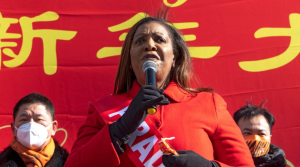DC Teens Accused in Brutal Carjacking Released Under Strict Court Conditions by Biden-Appointed Judge
Two teenagers allegedly involved in the attempted carjacking and violent assault of Edward Coristine, a former DOGE staffer, have been released under strict supervision by a judge appointed by former President Joe Biden. The decision has sparked nationwide outrage and reignited debates about juvenile justice and public safety in Washington, D.C.
Background of the Case
The case centers on the August 3 attack on Coristine, who gained notoriety under the nickname “Big Balls” during his time at DOGE. According to authorities, the two teens—a 15-year-old boy and a 15-year-old girl from Maryland—attempted to steal Coristine’s car in a brazen midday incident. When Coristine resisted, he was beaten severely, sustaining multiple injuries that required hospitalization.
The attack occurred amid rising concerns about violent crime in the nation’s capital, which has experienced a spike in carjackings and youth-involved offenses in recent months.
National Response and Trump’s Crime Crackdown
The incident drew immediate attention from President Donald Trump, who cited the assault as a key example of lawlessness in Washington, D.C. In response, Trump ordered federal control over the city’s police operations and deployed National Guard troops, supported by additional reinforcements from Republican-led states. This move was part of Trump’s broader crime-fighting initiative aimed at restoring law and order in urban areas plagued by violence.
The Court Hearing and Judge’s Decision
At a Thursday hearing, Judge Kendra Briggs, appointed by President Biden, ordered the teens released from the city’s Youth Services Center. The girl will be placed in a youth shelter with strict no-electronics rules, while the boy will return to his mother’s home. Both will be subject to:
-
24-hour curfew
-
Electronic monitoring
-
Mandatory drug testing
-
Ban on contacting each other
“The fact that this court is stepping you down from Youth Services Center is a serious step,” Judge Briggs said, warning that any further incidents of violence would trigger an emergency review of their release.
Defense vs. Prosecution
Prosecutors argued that the female suspect posed a flight risk and posed a danger to the community, noting her previous truancy issues and the fact that she had once been missing for months. They also highlighted a separate pending case against her in Maryland.
Her defense attorney countered that she was merely “in the vicinity” of the carjacking and that evidence linking her to the physical assault was minimal.
The boy, who lives too far from the shelter for practical placement, will remain under his mother’s care and will undergo random drug testing as a condition of his release.
Public Reaction and Broader Implications
Critics argue that Judge Briggs’ decision reflects a “soft-on-crime” approach that could endanger the public. Supporters of juvenile justice reform contend that detention should be a last resort, especially for minors without prior criminal records.
The case comes amid growing scrutiny of Washington, D.C.’s handling of violent crime and raises questions about whether political appointees are influencing judicial decisions. For President Trump, the incident adds fuel to his campaign narrative emphasizing law and order.
Authorities are still searching for a third suspect described as a Black male who allegedly fled the scene. Both teens are expected to return to school next week, even as the female suspect faces an upcoming trial in Maryland.
Bottom Line
The release of the two teens in such a high-profile case underscores the tension between juvenile rehabilitation and public safety—a debate likely to intensify as violent crime remains a key political issue heading into the 2026 midterms.
https://twitter.com/IanHansenNews/status/1958699277460676963

James Jenkins is a celebrated Pulitzer Prize-winning author whose work has reshaped the way readers think about social justice and human rights in America. Raised in Atlanta, Georgia, James grew up in a community that instilled in him both resilience and a strong sense of responsibility toward others. After studying political science and creative writing at Howard University, he worked as a journalist covering civil rights issues before dedicating himself fully to fiction. His novels are known for their sharp, empathetic portraits of marginalized communities and for weaving personal stories with broader political realities. Jenkins’s breakout novel, Shadows of Freedom, won national acclaim for its unflinching look at systemic inequality, while his more recent works explore themes of identity, resilience, and the fight for dignity in the face of oppression. Beyond his novels, James is an active public speaker, lecturing at universities and participating in nonprofit initiatives that support literacy and community empowerment. He believes that storytelling is a way to preserve history and inspire change. When not writing, James enjoys jazz music, mentoring young writers, and traveling with his family to explore cultures and stories around the world.









